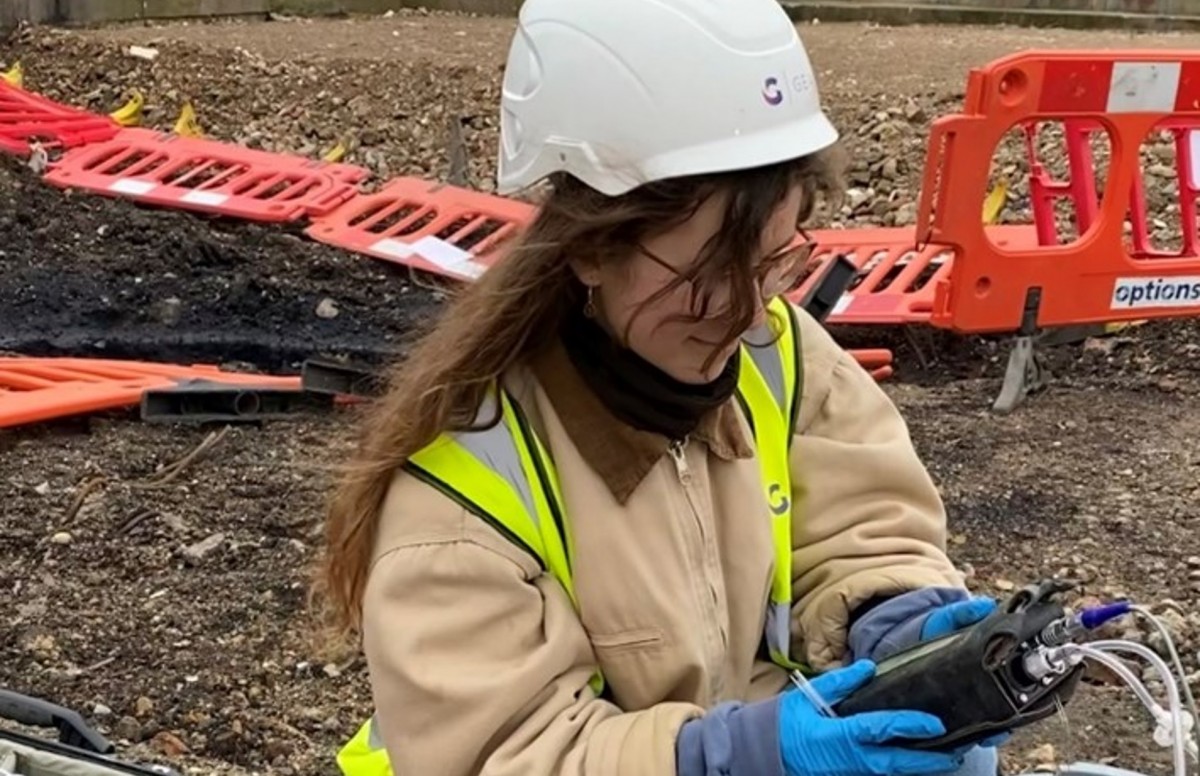How Geotheta can Save You Time, Stress, and Money.
How Geotheta can Save You Time, Stress, and Money.
Blog Article
The Geotheta Diaries
Table of ContentsA Biased View of GeothetaRumored Buzz on GeothetaThe Definitive Guide for GeothetaA Biased View of GeothetaNot known Factual Statements About Geotheta

They conduct website examinations, collect examples, do research laboratory examinations, and analyze information to review the suitability of the ground for building jobs - Consulting Engineers. Based on their findings, geotechnical engineers supply recommendations for foundation design, incline stability, preserving frameworks, and mitigation of geotechnical risks. They collaborate with various other experts, such as engineers, architectural designers, and building teams, to make certain that geotechnical considerations are integrated into the total job design and application
By assessing the actions and residential or commercial properties of dirt and rock, they can determine potential geotechnical threats such as landslides, dirt negotiation, or incline instability. Their competence aids stop failures or crashes that can threaten lives and residential property. Here are some detailed duties and responsibilities of a geotechnical designer: Website Investigation: Geotechnical designers conduct website examinations to collect data on subsurface conditions.
They translate the information to recognize the homes and actions of the dirt and rock, including their strength, leaks in the structure, compaction features, and groundwater conditions. Geotechnical Evaluation and Layout: Geotechnical engineers assess the information collected throughout site investigations to examine the stability and viability of the website for building and construction projects. They perform geotechnical estimations and modeling to assess variables such as bearing capability, negotiation, incline security, lateral earth stress, and groundwater circulation.
7 Easy Facts About Geotheta Described
Foundation Design: Geotechnical designers play a vital role in designing foundations that can securely support the designated structure. They assess the soil problems and lots needs to figure out the suitable foundation kind, such as superficial structures (e.g., grounds), deep structures (e.g (https://penzu.com/p/952dfde2dba9ee4f)., piles), or specialized methods like soil improvement. They take into consideration aspects such as negotiation limits, birthing capacity, and soil-structure communication to create optimal foundation styles
They evaluate building plans, screen site tasks, and conduct field examinations to confirm that the style suggestions are adhered to. If unforeseen geotechnical issues arise, they assess the situation and give referrals for remediation or modifications to the design. Threat Evaluation and Reduction: Geotechnical designers evaluate geotechnical threats and dangers connected with the job website, such as landslides, liquefaction, or dirt erosion.

Partnership and Communication: Geotechnical engineers work very closely with various other experts associated with a project, such as engineers, structural designers, and building teams. Reliable communication and partnership are necessary to incorporate geotechnical factors to consider into the general job design and construction procedure. Geotechnical engineers offer technical expertise, answer inquiries, and guarantee that geotechnical demands are satisfied.
More About Geotheta
Right here are some kinds of geotechnical designers: Foundation Designer: Structure designers focus on designing and evaluating structures for structures. They analyze the dirt problems, tons requirements, and website characteristics to identify one of the most ideal structure type and layout, such as superficial structures, deep foundations, or specialized strategies like heap structures.
They review the factors affecting incline security, such as dirt homes, groundwater problems, and incline geometry, and create strategies to avoid slope failings and mitigate dangers. Earthquake Engineer: Quake designers focus on evaluating and developing structures to stand up to seismic forces. They analyze the seismic risk of a site, review dirt liquefaction possibility, and establish seismic style criteria to make certain the safety and security and durability of structures throughout quakes.
They do field screening, collect samples, and analyze the collected data to identify the dirt residential or commercial properties, geologic developments, and groundwater problems at a site. Geotechnical Instrumentation Engineer: Geotechnical instrumentation designers concentrate on tracking and determining the behavior of dirt, rock, and frameworks. They install and maintain instrumentation systems that keep an eye on factors such as dirt negotiation, groundwater degrees, slope movements, and structural variations to examine performance and supply very early warnings of possible problems.
The Main Principles Of Geotheta
They carry out tests such as triaxial tests, loan consolidation tests, direct shear examinations, and leaks in the structure examinations to collect data for geotechnical evaluation and design. Geosynthetics Designer: Geosynthetics designers specialize in the layout and application of geosynthetic products, such as geotextiles, geogrids, and geomembranes. They utilize these products to improve soil security, enhance inclines, give drain services, and control erosion.
They have a tendency to be investigative people, which implies they're intellectual, introspective, and curious. They are curious, methodical, logical, analytical, and logical. Some of them are also social, suggesting they're kind, charitable, cooperative, client, caring, practical, empathetic, sensible, and pleasant - Consulting Engineers.
In the office atmosphere, geotechnical engineers make use of specialized software devices to perform estimations, develop designs, and examine information. They prepare reports, review task requirements, communicate with clients and staff member, and coordinate project tasks. The office setup provides a favorable environment for research, evaluation, and cooperation with various other experts entailed in the task.
Getting My Geotheta To Work
They regularly visit job sites to perform website examinations, examine geotechnical problems, and gather information for evaluation. These brows through include taking a trip to various places, often in remote or challenging surfaces. Geotechnical engineers may perform dirt tasting, conduct tests, and display building and construction tasks to guarantee that the geotechnical aspects of the job are being More Info applied correctly.
Geotechnical engineers additionally work in specialized geotechnical labs. In these facilities, they conduct experiments, execute examinations on dirt and rock samples, and examine the design buildings of the products. Geotechnical lab engineers work extensively in these environments, dealing with screening equipment, running tools, and recording information. They work together with other laboratory personnel to make sure precise and trustworthy testing results.
Report this page